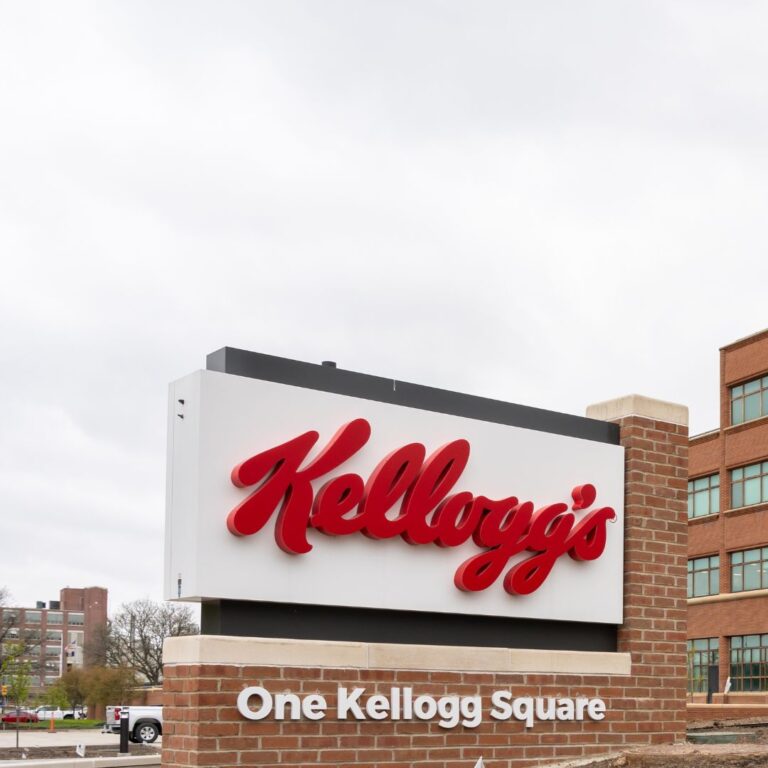Kellogg’s, one of the most iconic names in the global food industry, is synonymous with breakfast cereals and convenience foods. From its humble beginnings in a small sanitarium to becoming a multi-billion-dollar corporation, the story of Kellogg’s is a testament to innovation, adaptability, and strategic growth. This article delves into the fascinating history of Kellogg’s and its current financial standing as a global leader in the food industry.
The Origins of Kellogg’s: A Health-Focused Beginning
The Battle Creek Sanitarium
The story of Kellogg’s begins in the late 19th century in Battle Creek, Michigan. Dr. John Harvey Kellogg, a physician and nutritionist, managed the Battle Creek Sanitarium, a health resort promoting wellness through diet and exercise. One of his primary goals was to create healthier meal options for his patients, many of whom followed a vegetarian diet.
The Invention of Corn Flakes
In 1894, Dr. Kellogg and his younger brother, Will Keith (W.K.) Kellogg, accidentally discovered a new way to process wheat. While attempting to create a digestible bread substitute, they inadvertently created flakes of cooked wheat. This led to the creation of corn flakes, a product that revolutionized breakfast. The brothers patented the process in 1896, laying the foundation for the Kellogg brand.
The Founding of the Kellogg Company
A Business Visionary: W.K. Kellogg
In 1906, W.K. Kellogg established the Battle Creek Toasted Corn Flake Company, later renamed Kellogg Company. Unlike his brother, W.K. Kellogg recognized the potential for mass production and distribution of their cereal. His business acumen and marketing strategies helped the company grow rapidly.
Marketing and Innovation
W.K. Kellogg was a pioneer in advertising and branding. He introduced the concept of packaging cereal in sealed boxes, ensuring freshness and hygiene, which appealed to consumers. The use of colorful packaging and catchy slogans helped establish Kellogg’s as a household name.
Expanding the Product Line
Diversification in Breakfast Foods
As consumer demand grew, Kellogg’s expanded its product offerings to include a variety of cereals and breakfast-related items. Iconic brands like Rice Krispies (1928), Frosted Flakes (1952), and Froot Loops (1963) became staples in breakfast culture.
Entry into Snacks and Convenience Foods
In the mid-20th century, Kellogg’s diversified into snacks, acquiring brands like Keebler, Pringles, and Eggo Waffles. This strategic expansion allowed the company to tap into the growing market for convenient, ready-to-eat foods.
Kellogg’s Goes Global
International Expansion
By the 1920s, Kellogg’s was already exporting its products internationally. Over the decades, the company established manufacturing plants and distribution networks across Europe, Asia, Africa, and Latin America. Today, Kellogg’s operates in more than 180 countries.
Cultural Adaptation
Kellogg’s adapted its product lines to cater to regional tastes. For example, it introduced masala-flavored oats in India and chocolatey cereals in Latin America, ensuring relevance in diverse markets.
Kellogg’s Today: A Global Powerhouse
Net Worth and Financial Success
As of 2023, Kellogg’s has an estimated net worth of approximately $25 billion. The company generates annual revenues exceeding $14 billion, driven by its strong portfolio of brands, international presence, and commitment to innovation.
Key Revenue Drivers
Kellogg’s derives revenue from multiple segments:
- Cereals: Iconic brands like Special K, Corn Flakes, and Frosted Flakes.
- Snacks: Popular offerings like Pringles, Cheez-It, and Pop-Tarts.
- Plant-Based Foods: The MorningStar Farms line caters to the growing demand for plant-based protein.
Challenges and Resilience
Changing Consumer Preferences
The rise of health-conscious consumers and changing dietary trends have challenged Kellogg’s traditional cereal market. However, the company has responded by introducing whole-grain, low-sugar, and plant-based options.
Sustainability Goals
Kellogg’s has embraced sustainability as a core part of its mission, focusing on reducing food waste, improving packaging, and supporting sustainable farming practices. These efforts resonate with eco-conscious consumers.
Cultural Impact of Kellogg’s
Memorable Marketing Campaigns
Kellogg’s has left an indelible mark on popular culture through its advertising. Slogans like “Snap, Crackle, Pop” for Rice Krispies and characters like Tony the Tiger for Frosted Flakes have become iconic.
Breakfast Revolution
Kellogg’s is widely credited with popularizing ready-to-eat breakfast cereals, transforming how families start their day. Its emphasis on convenience and nutrition helped establish breakfast as the most important meal of the day.
The history of Kellogg’s is a story of innovation, resilience, and the ability to adapt to changing times. From its origins in a small sanitarium to its current status as a global food giant, Kellogg’s has consistently delivered on its mission to provide nourishing and convenient food options. With a robust financial standing and a commitment to sustainability, Kellogg’s is poised to continue leading the global food industry for generations to come.

